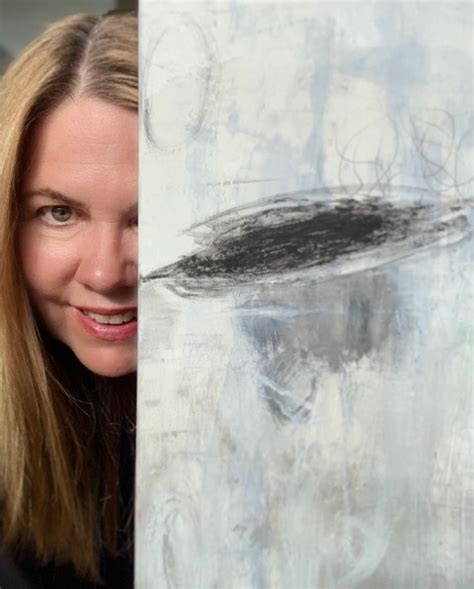A Quote by Orson Scott Card
Grief,she reminded herself, is almost always for the mourner's loss.
Related Quotes
Grief is real because loss is real. Each grief has its own imprint, as distinctive and as unique as the person we lost. The pain of loss is so intense, so heartbreaking, because in loving we deeply connect with another human being, and grief is the reflection of the connection that has been lost. We think we want to avoid the grief, but really it is the pain of the loss we want to avoid. Grief is the healing process that ultimately brings us comfort in our pain.
There is nothing more painful than the untimely death of someone young and dear to the heart. The harrowing grief surges from a bottomless well of sorrow, drowning the mourner in a torrent of agonizing pain; an exquisite pain that continues to afflict the mourner with heartache and loneliness long after the deceased is buried and gone.
Cassandra always hid when she read, though she never quite knew why. It was as if she couldn't shake the guilty suspicion that she was being lazy, that surrendering herself so completely to something so enjoyable must surely be wrong. But surrender she did. Let herself drop through the rabbit hole and into a tale of magic and mystery.
She emptied herself of Fabio and of herself, of all the useless efforts she had made to get where she was and find nothing there. With detached curiosity she observed the rebirth of her weaknesses, her obsessions. This time she would let them decide, since she hadn't been able to do anything anyway. Against certain parts of yourself you remain powerless, she said to herself, as she regressed pleasurably to the time when she was a girl.
Perhaps I will die too, she told herself, and the thought did not seem so terrible to her. If she flung herself from the window, she could put an end to her suffering, and in the years to come the singers would write songs of her grief. Her body would lie on the stones below, broken and innocent, shaming all those who had betrayed her. Sansa went so far as to cross the bedchamber and throw open the shutters ... but then her courage left her, and she ran back to her bed, sobbing.
Later she sat on the ground in the forest between school and home, and spring was so bright and beautiful, the warm air touched her so tenderly, she could almost feel herself changing into a flower. Her light dress felt like petals. "I love everything," she heard herself say. "So do I," a voice answered. Pearl straightened up and looked around. No one was there.
Much of Hamlet is about the precise kind of slippage the mourner experiences: the difference between being and seeming, the uncertainty about how the inner translates into the outer, the sense that one is expected to perform grief palatably. (If you don’t seem sad, people worry; but if you are grief-stricken, people flinch away from your pain.)
Sydney discovers that she minds the loss of her mourning. When she grieved, she felt herself to be intimately connected to Daniel. But with each passing day, he floats away from her. When she thinks about him now, it is more as a lost possibility than as a man. She has forgotten his breath, his musculature.






































